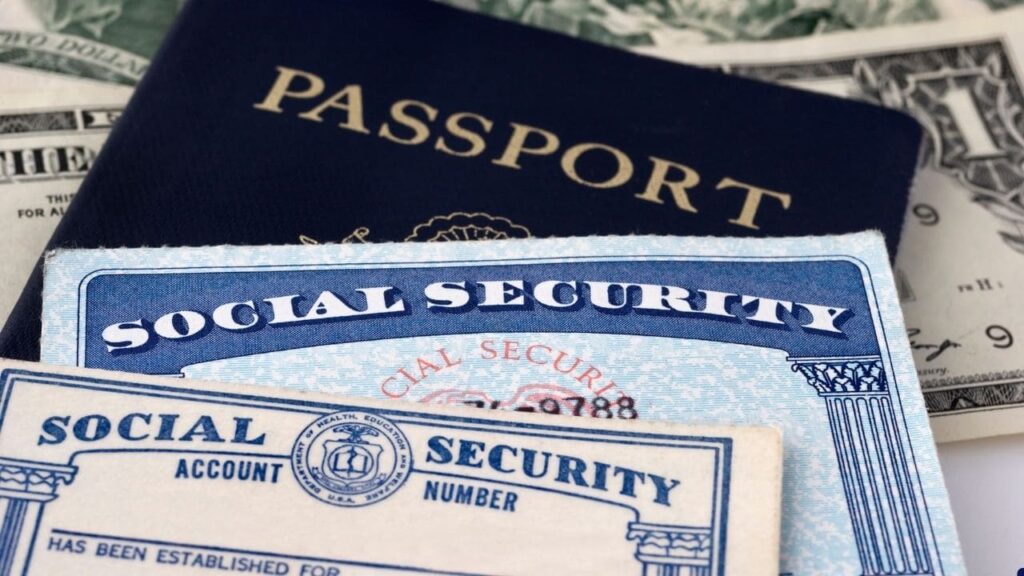For many people in the United States, retirement brings with it an important question: What happens to Social Security if I decide to move to another country? Whether for economic, family, climate, or personal reasons, living outside the country may seem like an attractive option for improving quality of life or reducing expenses. However, before making such an important decision, it is essential to understand how it may affect your monthly Social Security payments.
The program is designed to provide a stable income for retired workers, people with disabilities, and certain family members, but the rules change when the beneficiary resides outside the country. Although many believe that leaving the United States means losing benefits, there are actually multiple possible scenarios depending on the type of benefit and the country you move to.
In addition, not all Social Security benefits operate under the same conditions. While retirement or disability payments may continue abroad, SSI (Supplemental Security Income), which is intended for people with low incomes, cannot be collected outside the country, with few exceptions. Below, we review the key criteria so you can determine whether you can move without giving up your entitlement.
Countries where you can continue receiving Social Security
According to the Social Security Administration, you can continue to receive your monthly payments in more than 100 countries around the world, as long as you meet certain basic requirements and properly notify them of your change of residence. The system does not automatically stop when you move, but the destination country directly influences the viability of collection.
Some of the most common countries among US retirees, such as Spain, Mexico, Canada, Germany, France, Costa Rica, and Japan, allow you to receive benefits without any major complications. In these destinations, the government has agreements or conditions in place that allow payments to arrive on time, provided that the beneficiary continues to meet the eligibility criteria and completes the necessary documentation.
On the other hand, there are countries where Social Security cannot send money under any circumstances, such as North Korea and Cuba, due to legal or diplomatic restrictions. In these cases, if you decide to move there, payment will be suspended until you return to an authorized country. There are also other places where payments can only continue if you actively prove your entitlement from time to time, either through consular visits or verification questionnaires.
This means that it is not enough to simply move to any country: it is essential to check in advance whether that country allows you to receive payments and under what conditions. The SSA’s official “Payments Abroad Screening Tool” allows you to check this in seconds.
Requirements for continuing retirement payments
In addition to your country of residence, there are also general rules that must be followed in order to maintain your right to monthly collection. One of the basic requirements is to notify the Social Security Administration if you are going to live outside the United States for more than 30 consecutive days. Failure to do so may result in suspension of payment or penalties for noncompliance.
In most cases, beneficiaries living abroad must respond to form SSA-7162 once a year, confirming that they are alive and still eligible. This form is sent by mail or can be processed through embassies or consulates. Failure to respond on time may result in automatic suspension of benefits until the situation is resolved.
It is also important to choose a compatible collection method. Most people choose to receive payments via direct deposit into an international bank account or a United States account. The SSA works with a network of authorized international banks to facilitate this option, although in some countries not all institutions are authorized to receive Social Security funds.
Failure to comply with these conditions, or ignoring the required procedures, can lead to temporary loss of benefits, payment errors, or even having to return amounts collected in error.
What happens if you collect SSI and leave the United States
If you are not receiving a retirement payment, but rather payments from the Supplemental Security Income (SSI) program, the rules change drastically. SSI is intended for people with very low incomes and limited resources, and is only available within the United States and in some of its territories, such as Puerto Rico, Guam, and the Virgin Islands.
If you move abroad and remain outside the country for more than 30 consecutive days, SSI payments are automatically suspended and will not resume until you return and have lived in the United States for at least 30 consecutive days. Even if you plan to return soon, simply exceeding the 30-day threshold can affect the continuity of your payments.
This means that people who get SSI should think twice before moving abroad, even temporarily, as the impact on their income can be significant. Unlike traditional Social Security, there is no option to continue receiving payments through international deposit, nor are there any agreements with other countries that support this.
Therefore, before making a final decision, it is advisable to contact Social Security or visit its official website to confirm whether you can continue collecting your benefits and under what conditions. This will help you avoid costly mistakes and allow you to enjoy your new life outside the United States without losing the financial stability that your benefits provide.
